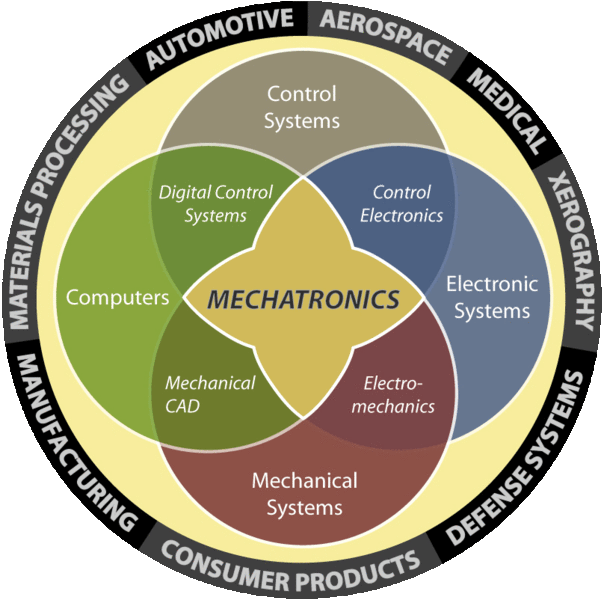Mechanical Engineering
Mechanical Engineering
220 S. W. Mudd, MC 4703
Phone: 212-854-2965
www.columbia.edu/cu/mechanical
Mechanical engineering is a diverse subject that derives its breadth from the need to design and manufacture everything from small individual parts/devices (e.g., micro-scale sensors, inkjet printer nozzles) to large systems (e.g., spacecraft and machine tools). The role of a mechanical engineer is to take a product from an idea to the marketplace. In order to accomplish this, a broad range of skills are needed. The particular skills in which the mechanical engineer acquires deeper knowledge are the ability to understand the forces and the thermal environment that a product, its parts, or its subsystems will encounter; design them for functionality, aesthetics, and the ability to withstand the forces and the thermal environment they will be subjected to; determine the best way to manufacture them and ensure they will operate without failure. Perhaps the one skill that is the mechanical engineer’s exclusive domain is the ability to analyze and design objects and systems with motion.
Since these skills are required for virtually everything that is made, mechanical engineering is perhaps the broadest and most diverse of engineering disciplines. Hence mechanical engineers play a central role in such industries as automotive (from the car chassis to its every subsystem—engine, transmission, sensors); aerospace (airplanes, aircraft engines, control systems for airplanes and spacecraft); biotechnology (implants, prosthetic devices, fluidic systems for pharmaceutical industries); computers and electronics (disk drives, printers, cooling systems, semiconductor tools); microelectromechanical systems, or MEMS (sensors, actuators, micro power generation); energy conversion (gas turbines, wind turbines, solar energy, fuel cells); environmental control (HVAC, air-conditioning, refrigeration, compressors); automation (robots, data/image acquisition, recognition, and control); manufacturing (machining, machine tools, prototyping, microfabrication).
To put it simply, mechanical engineering deals with anything that moves, including the human body, a very complex machine. Mechanical engineers learn about materials, solid and fluid mechanics, thermodynamics, heat transfer, control, instrumentation, design, and manufacturing to realize/ understand mechanical systems. Specialized mechanical engineering subjects include biomechanics, cartilage tissue engineering, energy conversion, laser-assisted materials processing, combustion, MEMS, microfluidic devices, fracture mechanics, nanomechanics, mechanisms, micropower generation, tribology (friction and wear), and vibrations. The American Society of Mechanical Engineers (ASME) currently lists thirty-six technical divisions, from advanced energy systems and aerospace engineering to solid waste engineering and textile engineering.
The breadth of the mechanical engineering discipline allows students a variety of career options beyond some of the industries listed above. Regardless of the particular future path they envision for themselves after they graduate, their education would have provided them with the creative thinking that allows them to design an exciting product or system, the analytical tools to achieve their design goals, the ability to meet several sometimes conflicting constraints, and the teamwork needed to design, market, and produce a system. These skills also prove to be valuable in other endeavors and can launch a career in medicine, law, consulting, management, banking, finance, and so on.
For those interested in applied scientific and mathematical aspects of the discipline, graduate study in mechanical engineering can lead to a career of research and teaching.
Current Areas of Study
-
Aerospace
-
Automation
-
Aviation
-
Combustion internal engine
-
Continuum (Dynamics, statics, kinematics, solids)
-
Fluids
-
Heat transfer
-
HVAC
-
Machine design
-
Manufacturing
-
Micro electrical machines
-
Mechatronics
-
Nanomaterial and technology
-
Naval
-
Propulsion, Robotics
-
Thermodynamics
-
Tribology
-
Turbo machinery
-
Vibrations, waves
Major Subsections and areas of study are as follows:
-
Design and Dynamic Systems Sector
-
Relying on controls, modeling and computer simulation as well as integration into various processes
-
Energy, Thermo-Fluids Sector
-
Utilizing theromodynaimcs, fluid mechanics, and heat transfer to relate the transfer of engery in given systems theoretical or natural.
-
Industrail Sector
-
Focused on practical applications dealing with manufacturing and robotic simulation.
Career paths:
- Industry
- Graduate School
- Entrepreneur
- Research Labs
- Military
- Government
